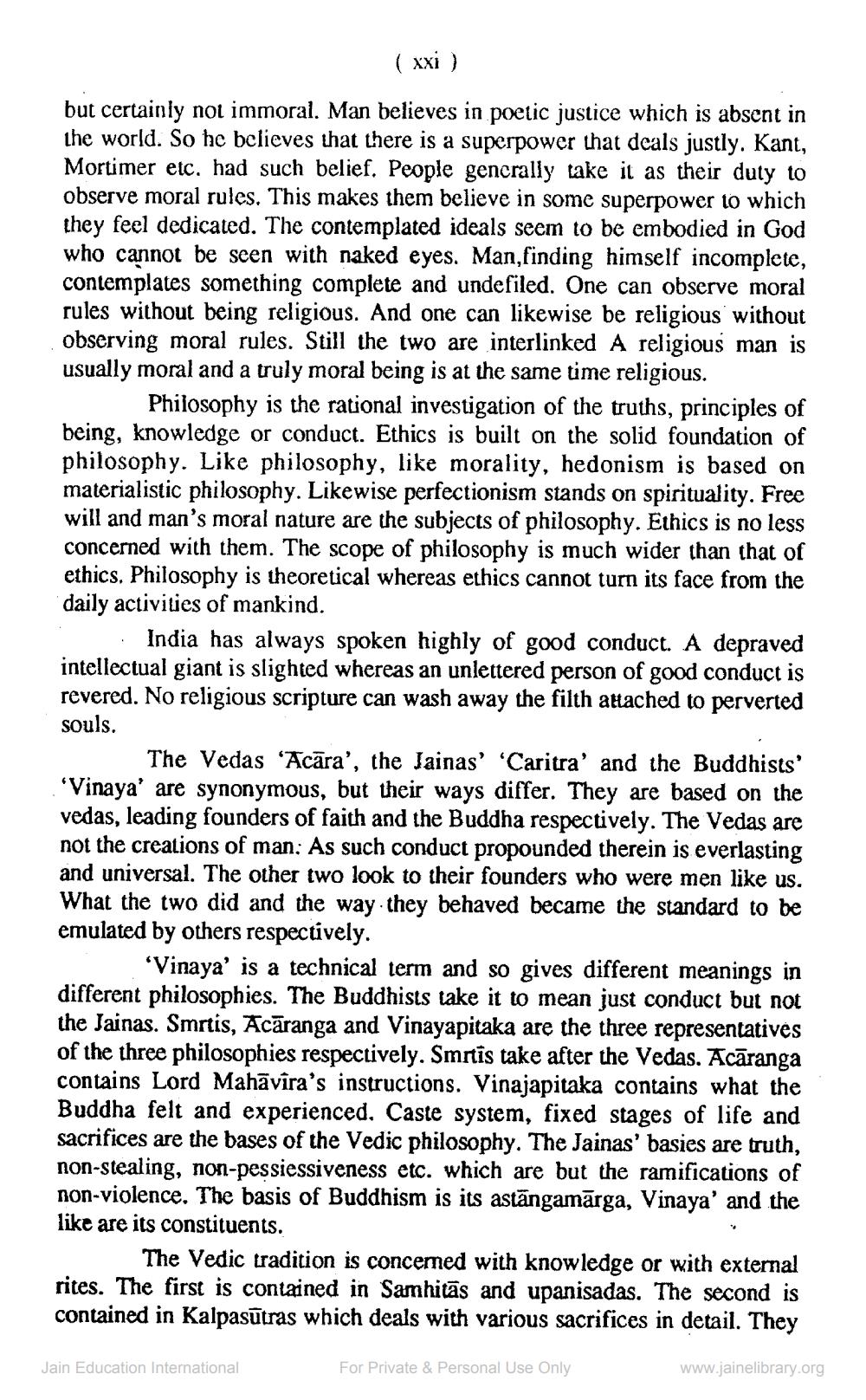________________
( xxi )
but certainly not immoral. Man believes in poetic justice which is absent in the world. So he believes that there is a superpower that deals justly. Kant, Mortimer etc. had such belief. People gencrally take it as their duty to observe moral rules. This makes them believe in some superpower to which they feel dedicated. The contemplated ideals seem to be embodied in God who cannot be seen with naked eyes. Man finding himself incomplete, contemplates something complete and undefiled. One can observe moral rules without being religious. And one can likewise be religious without observing moral rules. Still the two are interlinked A religious man is usually moral and a truly moral being is at the same time religious.
Philosophy is the rational investigation of the truths, principles of being, knowledge or conduct. Ethics is built on the solid foundation of philosophy. Like philosophy, like morality, hedonism is based on materialistic philosophy. Likewise perfectionism stands on spirituality. Free will and man's moral nature are the subjects of philosophy. Ethics is no less concerned with them. The scope of philosophy is much wider than that of ethics. Philosophy is theoretical whereas ethics cannot turn its face from the daily activities of mankind.
· India has always spoken highly of good conduct. A depraved intellectual giant is slighted whereas an unlettered person of good conduct is revered. No religious scripture can wash away the filth attached to perverted souls.
The Vedas 'Acāra’, the Jainas' 'Caritra' and the Buddhists' 'Vinaya' are synonymous, but their ways differ. They are based on the vedas, leading founders of faith and the Buddha respectively. The Vedas are not the creations of man: As such conduct propounded therein is everlasting and universal. The other two look to their founders who were men like us. What the two did and the way they behaved became the standard to be emulated by others respectively
‘Vinaya' is a technical term and so gives different meanings in different philosophies. The Buddhists take it to mean just conduct but not the Jainas. Smrtis, Acāranga and Vinayapitaka are the three representatives of the three philosophies respectively. Smrtis take after the Vedas. Acāranga contains Lord Mahāvīra's instructions. Vinajapitaka contains what the Buddha felt and experienced, Caste system, fixed stages of life and sacrifices are the bases of the Vedic philosophy. The Jainas' basies are truth, non-stealing, non-pessiessiveness etc. which are but the ramifications of non-violence. The basis of Buddhism is its astāngamārga, Vinaya' and the like are its constituents.
The Vedic tradition is concerned with knowledge or with external rites. The first is contained in Samhitās and upanisadas. The second is contained in Kalpasūtras which deals with various sacrifices in detail. They
Jain Education International
For Private & Personal Use Only
www.jainelibrary.org




